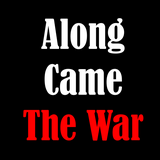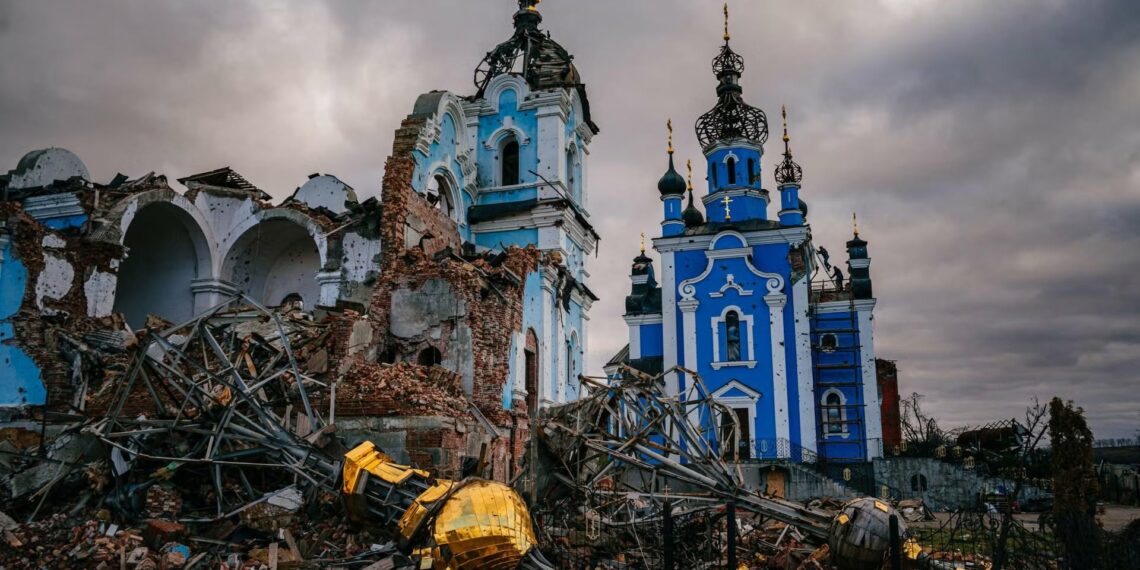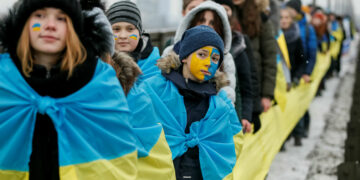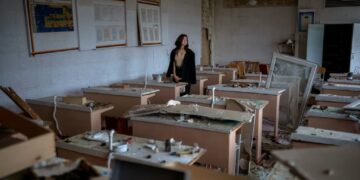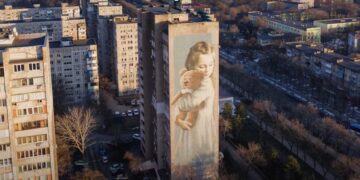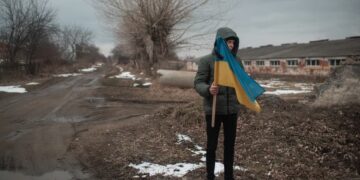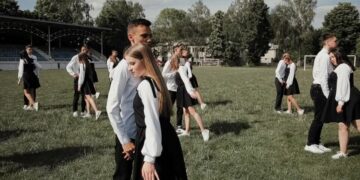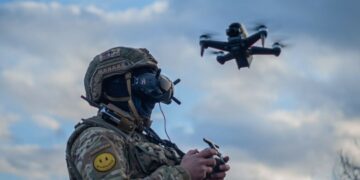In light of yesterday’s papal election, we have a unique opportunity to reflect on the evolving relationship between Ukrainians and religious institutions. As our students’ thoughtful essays demonstrate, Ukraine’s spiritual landscape is complex and multifaceted – shaped by history, war, cultural identity, and personal belief.
The election of a new Pope invites us to consider how global religious leadership intersects with Ukraine’s ongoing journey of faith. For some Ukrainians, particularly Greek Catholics in western regions, the Pope represents a symbolic connection to the broader Catholic world while maintaining their distinct Eastern traditions. For others navigating faith during wartime, this transition in Vatican leadership raises questions about solidarity and spiritual support during national struggle.
Anna Haidai:
Religion in modern Ukraine is something we are rethinking. Firstly, people now have the freedom to question religion and decide how they feel about it. Moreover, they keep tolerant if someone else has different views. It seems like faith has become separate from being strictly religious. People can believe in God but not go to church, or they can pray but not bake Easter cakes.
However, we still hold on to faith in God when we face war. This is the second point I want to highlight. During air raids and explosions, we often freeze and ask God to give us another day. On the battlefield, we have chaplains. These are religious figures who support soldiers when they are exhausted and demoralized. Serhiy Zhadan mentions such priests in his collection “Arabesques.” He writes that a chaplain is like a “telephone” between soldiers and civilians when fear is so strong that only faith keeps them going.
At the same time, Ukraine is experiencing a phenomenon of “shaken faith.” In Cossack times we fought for specific religious beliefs, whereas now we face a deeper question: “Does God really exist if He allows us to suffer so much, especially when we have fought for Him throughout history?”
Religion in Ukraine is in a complex situation. The church is going through reforms (moving away from the Moscow Patriarchate). Some people are losing faith in religion, while others hold on to faith as the only way to stay sane. Personally, I strongly believe that what keeps us going is tolerance and the tendency to believe, which our ancestors passed down to us. I would like us to return to this tendency.
Maria Fityo:
Yesterday, the new Catholic pope was elected. So I would like to take this opportunity to tell you about the attitude to the pope of Christians from Lviv, who are known for being too religious.
To begin with, I have to notice that the Ukrainian Greek Catholic Church (UGCC) has a certain degree of independence from the Roman Catholic Church. Despite the union with Rome, historically this church has been closer in tradition and practice to the Orthodox Church in Ukraine than to the Pope. This factor has had a significant impact on the attitude of common Christians in Lviv.
For many believers in Lviv, the Pope is seen not so much as a direct religious authority, but more as a symbolic figure – a global representative of Catholicism rather than a personal spiritual leader. Local religious life is guided primarily by their own bishops and the Patriarch of the UGCC, who is based in Kyiv. As a result, although the election of a new Pope is acknowledged and respected, it does not usually provoke strong emotional reactions among Greek Catholics in Lviv.
There is also a historical and cultural nuance to this attitude. During the times of the Austro-Hungarian Empire and later under Soviet rule, the Greek Catholic Church often found itself defending its unique identity. This meant emphasizing its Eastern liturgical traditions, its connection to Ukrainian national consciousness, and its difference from both the Latin Rite and the Orthodox Church. These experiences strengthened a sense of local religious autonomy and pride, further distancing believers from Vatican-centered narratives.
Another thing I want to tell you about is how different religions coexist in Lviv, taking into account the religiosity of Christians. Despite the dominant Christian presence, Lviv has a long history of religious pluralism. Historically, the city was home to Poles, Ukrainians, Jews, Armenians, and others. For these long centuries living here, each of them has brought their faith and traditions into city life. The memory of this coexistence still lives in the city’s architecture, place names, and institutions. For example, the Armenian or Jewish quarter with its churches and synagogues (unfortunately destroyed in the 2nd World War) is the most striking example of how each community save its religion.
That is the reason Lviv is home to various religious communities, including Jewish, Muslim, Protestant, and even Buddhist groups. Even though these communities are relatively small compared to the Christians, that doesn’t mean that they are not active, respected or welcomed. Of course, the strong presence of Christianity does shape the social atmosphere. But there are many projects and initiatives aimed at educating my generation about different religions and to make the connections between religions better. Speaking about my experience, I have many Muslim or Protestant friends who feel completely free to have a different religion. I think this is an indicator that Lviv is actually a very tolerant and modern city.
